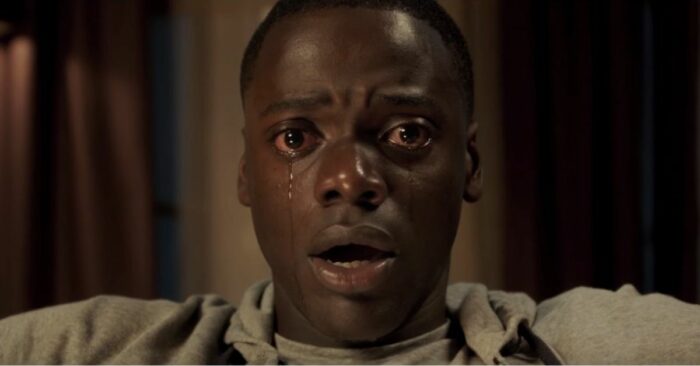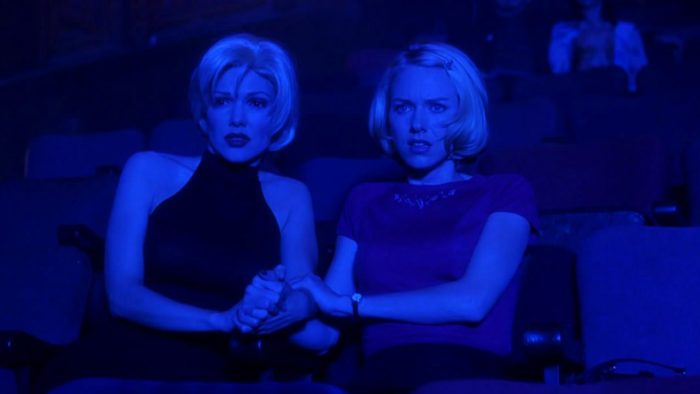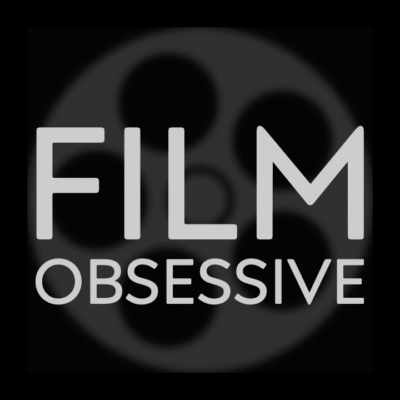As we reported last week, Sight and Sound’s eighth decennial critics’ poll selecting the 100 Greatest Films of All Time brought out some changes, not only at the top of the list, where Chantal Akerman’s Jeanne Dielman, 23 Quai du Commerce, 1080 Bruxelles replaced Alfred Hitchcock’s Vertigo, but throughout. New films and directors appeared for the first time, some shooting up the list, while others fell precipitously in or from the rankings. Our staff has been obsessing over the 2022 Sight & Sound poll results and the fervent discourse they’ve generated. Here’s our take!
On the new “Greatest Film of All Time,” Jeanne Dielman, 23 Quai du Commerce, 1080 Bruxelles …
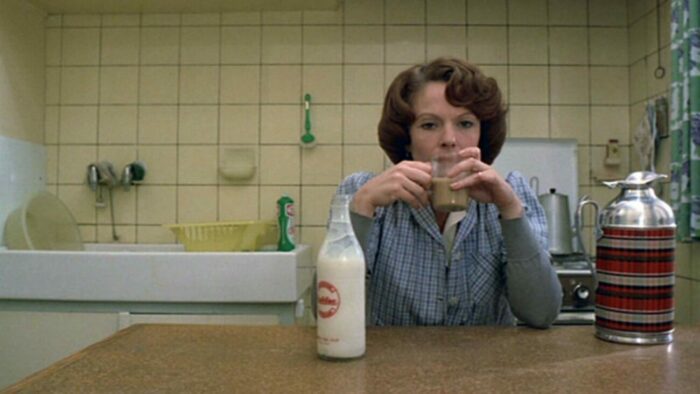
Hal Kitchen: Many have argued that the list is kowtowing to contemporary mores and social standards of political correctness by elevating films by women and non-whites. This is a perspective we should acknowledge but perhaps ought to waste little time on. Films originating from women and non-white sources have traditionally been shut out of the historical canon, in preference to the auteurist canon of Hollywood and European films, the “classic” era of filmmaking where the industry was at its economic peak, and its peak of homogeneity, suffering from strict national censorship and almost exclusively white male authorship. The writers of Cahiers and their ilk established the precedent for what “worthy” films and their makers look like, in most cases, like themselves. The inclusion of contemporary films from more diverse sources may chafe with the personal biases the modern-day followers of such canons bring to such a list, and throw up some unpredictable results, but by striving to represent the full breadth of cinema as a global art form, they’re doing God’s work.
J Paul Johnson: Jeanne Dielman, 23 Quai du Commerce, 1080 Bruxelles at the top of the list is a shock, I’ll admit, a bolt out of the blue I did not see coming! The Sight & Sound list has always skewed toward the canonical—while also doing a fair amount of work to codify that canon. Now let me say Jeanne Dielman is a great, great film. Like Welles had with Kane, the young director surrounded herself with her friends and contemporaries and made her own damn thing her own damn way, putting the tripod where she pleased (her own sleight eye-level height) and refusing to move it, even when her protagonist disappeared offscreen. Jeanne Dielman‘s refusal to kowtow to the conventions of plot-driven narrative or classical editing sequences is feminism itself. And the film is, if the very slowest of slow burns, an expressly cinematic experience.
So while my own choices for the Top 10 did not include Jeanne Dielman, favoring Spike Lee’s Do the Right Thing for the #1 spot, I have no quibble at all with this new no. 1, just the fourth ever in the poll’s history. (For the record, though, I likely would have listed it somewhere in the 20s or 30s, where it rested in the 2012 poll, with Larisa Shepitko’s The Ascent and a couple of other female-directed films in front of it.) It’s a well-deserved honor for Akerman and her accomplishment and will surely drive more and more people to see the film. And its placement is all the more likely to stir even further healthy debate about “what kind of film” should be called “The Greatest of All Time.”
James Y. Lee: Ever since Paul Schrader made his intriguing Facebook post about what Jeanne Dielman’s #1 crowning meant for the shifting trends in film discourse over the past ten years, I’ve been thinking what exactly constitutes the “historical continuum” vs. the “politically correct rejiggering” he seems to blame for this new ranking, and I can’t help but come to the conclusion that they’re virtually the same thing: the latter is just the former seen through a less charitable light.
Yes, as he mentions, it’s difficult to deny that Jeanne Dielman is not just a great film (never has more than three hours of monotony been so infuriatingly memorable and jarring), but a deeply influential one. Its reshaping of the aesthetics of feminist cinema and its distinct thematic approaches to patriarchal repression is more than enough reason to place it so highly on this list, and the fact that the film has essentially won what amounts to the greatest popularity contest in film history, counted from the votes of over 1600 cinematic figures (about twice the amount of the last poll’s voters) should be enough for most people to realize that its growing popularity is reflective of how expanding the diversity of voters by a wide margin can lead to significant yet expected shifts in what kinds of films, from what kinds of filmmakers, are praised as “great” to begin with. As with all new developments in artistic spheres, this is not a manipulated appeal to the “PC woke”-types as the phrase “politically correct rejiggering” might suggest—if it was, Vertigo would probably have landed far, far lower on the list than just #2—but a natural process reflective of demographic changes, or in other words, a historical continuum.
Sure, it’s possible, as Schrader says, that this new #1 ranking may do the film no favors and lead it to it being remembered as a symbol of the “politically correct rejiggering” that he so plainly rejects, but it’s worth considering the specific kinds of people who we know will choose to remember this decade’s poll in such an uncharitable light, and how productive many of these people’s approach to seeing film really is once you take their other related opinions on cinema into consideration. The rampant commercialization of film as a medium has blinded many audiences to the diversity of film, but Jeanne Dielman‘s #1 spot is a rejection of that canonically entrenched homogeneity, and a deeply welcome change that will only grow on us over time. Perhaps Vertigo will overtake it once again within the next ten years, but the mark has been made, and there is no going back—all for the better, in my opinion!
On this year’s Top 10 …
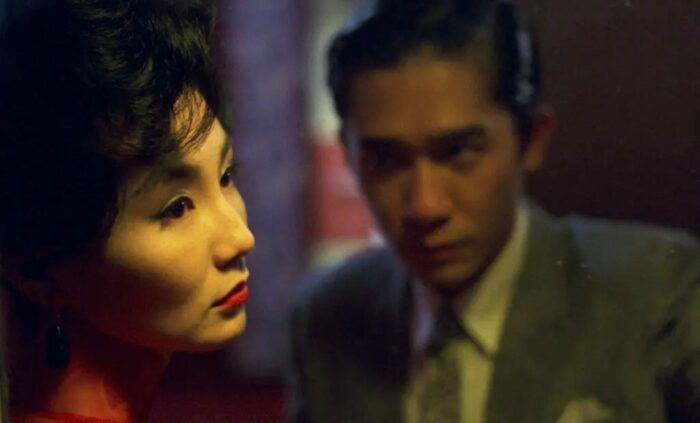
J Paul Johnson: For the Top 10 to have remained as static as it otherwise did is remarkable given the jump of Jeanne Dielman into the #1 spot. Much of the Top 10 stayed the same, with Kane and Vertigo next and perennial choices Tokyo Story, 2001: A Space Odyssey, Man with a Movie Camera, and Sunrise (all richly deserving!) all remaining.But the presence of relative newcomers Wong Kar-Wai’s In the Mood for Love, David Lynch’s Mulholland Dr, and Claire Denis’ Beau Travail—all of them esoteric, nonconventional, moody, and allusive—is equally meaningful. If there is going to be greater change in the Top 10 (Jeanne Dielman aside), I think we’re more likely to see it in 2032. Even then, I don’t anticipate the top of the list to change as radically as the rest of it.
Don Shanahan: Any of the next five films directly behind Jeanne Dielman from #2-#6 (Vertigo, Citizen Kane, Tokyo Story, In the Mood for Love, or 2001: A Space Odyssey) better fit the “best ever” profile. From my own (albeit more American) tastes, I’m a Casablanca (#63) or The Godfather (#12) kind of cinephile, but that’s why folks like me separate “best” from “favorite,” even when both descriptors could fit.

